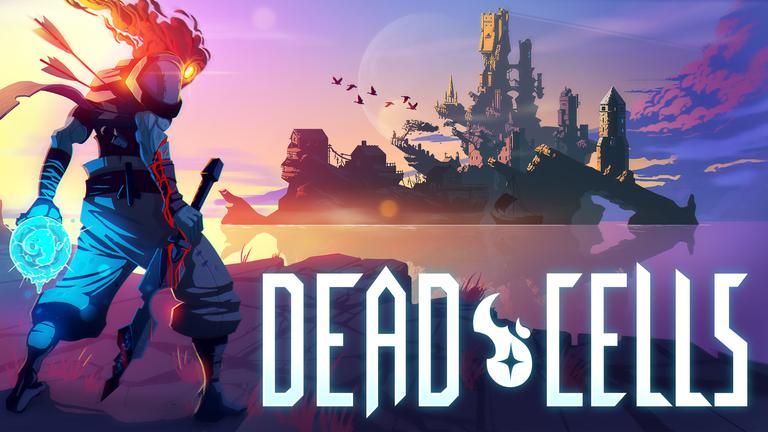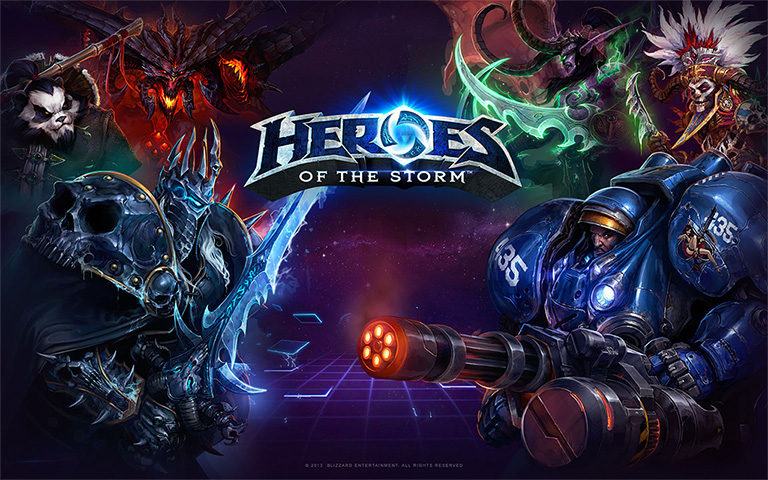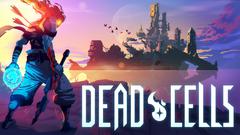Perhaps you've played some parts of Dead Cells before. The DNA is similar and in the 2D action platformer are imitations of Symphony of the Night and Super Metroid. Rogue Legacy's continuous reveals across randomized runs strengthen Dead Cells' foundation of gameplay. With its fast recovering health regeneration and rushed melee strikes, even Bloodborne presents its fast-paced combat.
It'd be simple to stare at the copied ideas and taken bits mentioned before and remove Dead Cells as a strange Frankenstein's monster title, chocked full of borrowed gameplay systems and mechanics. It definitely reads like that on paper. But to play this game and see how its parts assemble; to experience how it twists elements together, adopts them in order to create something extraordinary, is to have the feel of an excellence. It surely looks good and plays great as well. It's electrical mix of challenge and brilliance that's way more impressive than the rogue-lite, metroidvania or whatever we're calling them nowadays which are just released only on Early Access.
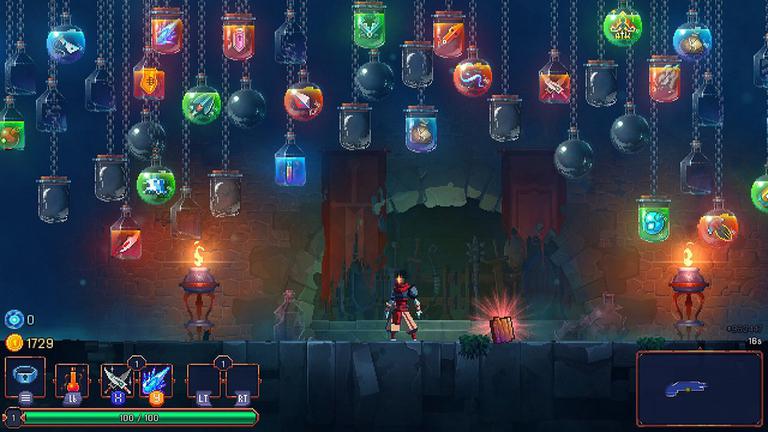
Despite the fact that it has an Early Access headline, I find it difficult to call Dead Cells incomplete. The feature might not be finished, but the build functions as a released product. Games with a title of Early Access games quite often have a certain blemish, naturally, folks don't find it smart to throw money at a half-baked product, an incomplete concept, but Motion Twin's work on Dead Cells create an irresistible argument for the program. There are loads of skills (including varying power levels), environments, fifty-some-odd weapons, and a few enemies, including two bosses and elite variants. That's more than enough to justify the price tag if looking from the content standpoint, but that's how everything elevating Dead Cells even further come together.
Navigating the labyrinthian hallways of destroyed castle ramparts and underground jails takes the most of your time. A green blob, the protagonist who's taken over a decapitated corpse, cannot die. Each death begins with the same cycle: fuse with the body, look for some weapons, and maneuver through the randomly created halls of a decaying kingdom. It doesn't hide much of a story, but that's fine, considering that the games actions speak louder than its dubious words.
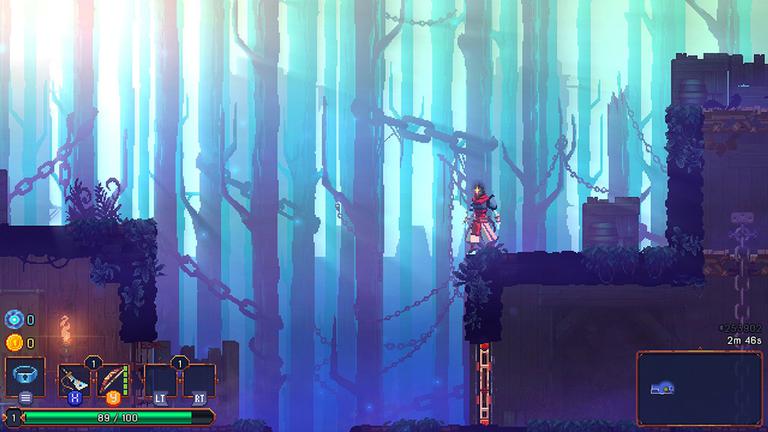
In these kind of roguelikes, each run you start on is completely different than the last one. In the beginning you'll start with a small sword and options between a shield or a bow. Killed enemies will drop Cells and blueprints, which are a form of games currency used in order to unlock new skills and weapons. Since the Prisoner can find an exit in the given level, to earn new loot all players can exchange their collected Cells with a creature called The Collector. After some time, the new, randomized gear starts to get thrown into the mix, increasing fuel the roguelike fire.
Dead Cells carries a constant sense of high-reward, high-risk exploration, because you are only able to trade with the Collector after leaving the stage. Almost always you'll want some more Cells, but realizing that one wrong decision can mean your defeat makes hurrying into combat dangerous as hell. It's way too simple to get whipped by the Dead Cells' mix of armored knights and grotesque zombies, even if you have increased health, boosted utility skills, and upgraded strength (which are earned by collecting scrolls spread throughout different levels).
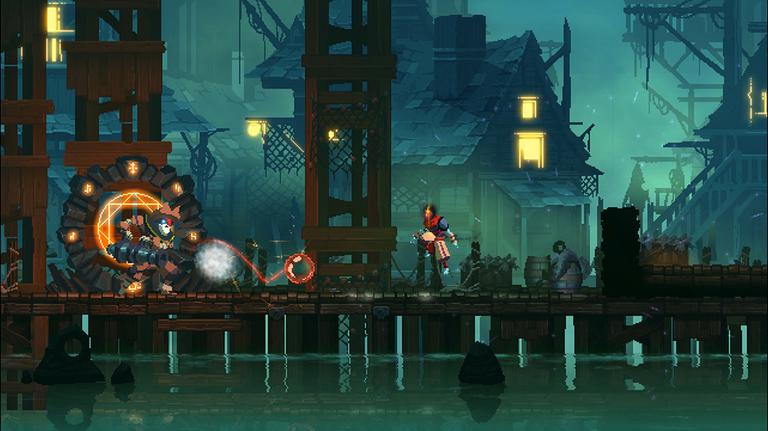
Then, combat becomes a complicated dance. It's fast and flowing, but greatly challenging so that players must watch each enemy's pattern of attack. The Prisoner is a capable enemy despite its long-dead body. Players are able to perform aerial attacks, do double jump, roll past some enemies, as well as switch between their utility skills and two primary weapons with a goal to perform powerful combos. When you take damage, some of the Prisoner's health earns back after landing a few quick strikes and this further adds to the game's core target on rewards and risks. Dead Cells does an extraordinary job of creating combat look really flashy, with polished animations to complement its art of pixel, while it's also creating every strike feel as though there's a weight behind it.
Although often the safest seems the methodical approach to combat, in the long run it can actually hurt players. There are secrets hidden in each stage, starting from carrots squirreled away behind thin walls, to Cursed Chests that hide big bonuses at a steep cost. Time-locked doors are the most attractive of them. Just when players have the control over the Prisoner, a timer starts to count seconds until all the routes through the game are locked off. This is very similar to Nuclear Throne's mysterious paths in that running towards them is a great rush, but most of the time it can turn out leading you towards being completely underprepared for what awaits. It's an included difficulty circle that high-level players and speedrunners will get a long run out of, but there's enough to see if your main goal isn't to just race towards these doors.
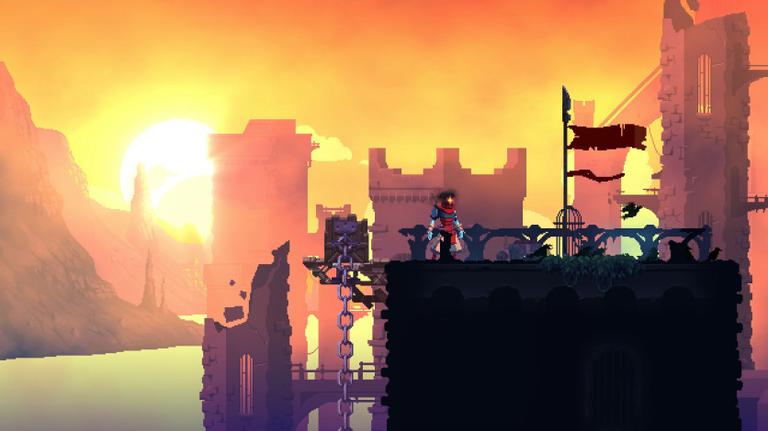
Likewise, the Prisoner is able to learn advantageous skills of movement which transfer from run to run. Tickling some objects laying on the ground causes roots to attack upward, giving a chance to unlock an access to secret locations. There's an opportunity to transport the Prisoner across short-lived distances that are otherwise out of reach using an electric zapping technique, which functions as a short-distance teleport. Combined with regular teleporters and the sprawling levels that clutter the environment, these upgrades build a free sense of movement that confuses well the game's standard controls. Basically, like an undead ninja is the way you feel.
To be honest, about Dead Cells I could go on and on. Even if the game is not completely released, it's already in my this year's top 5 list of favorite games. I'm sure I'll continue returning back to this game over and over again, just like the Prisoner's inability to stay dead for good.
